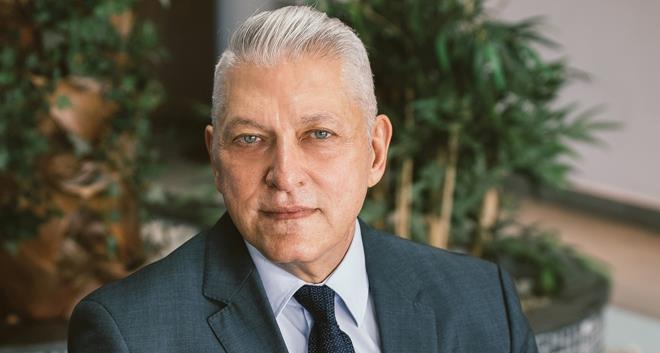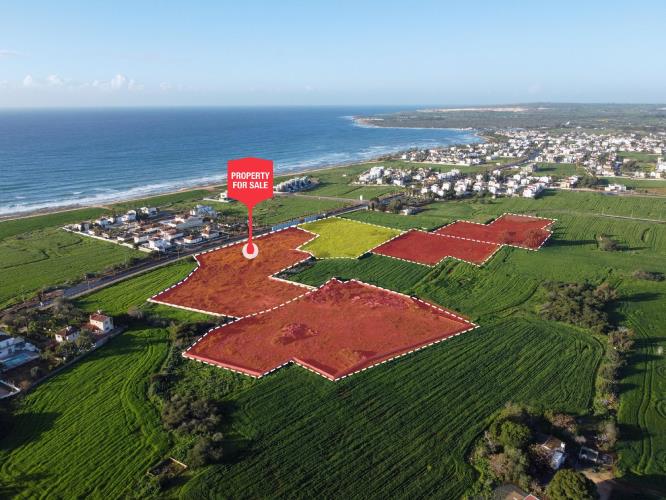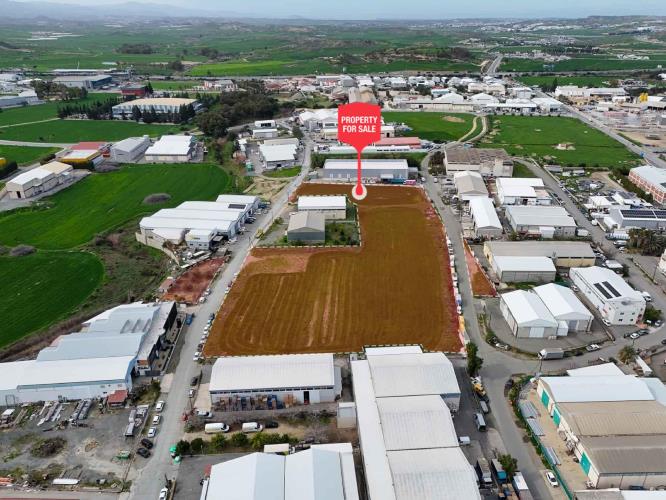Petros Livanios has every reason to be a happy and proud man. Trident Trust Company (Cyprus) Limited, of which he has been Managing Director since its formation, celebrates its 20th anniversary this year and he is fortunate to be able to look back at two decades of success and continuous growth.
“The UK-based Trident Trust Group acquired a local operation back in 1995 and it was the first group to be granted permission by the Central Bank of Cyprus to acquire 100% of the share capital of a local operation,” he recalls. “The CBC was very keen to bring one of the big players in the Trust industry so they facilitated and made all the procedures very easy for us to come here from the UK. At that time, I was the manager of the local operation, which employed only five people. Over these 20 years we have grown...and grown...and grown! Now there are 110 of us including those in the sister company which is also housed in the same building. The Cyprus operation as such has 65 people and the sister company 45.”
In response to the question about the changes he has seen during the company’s lifetime, Livanios laughs: “We've seen nearly everything!” and he cites the people who have, at various times, left Lebanon, Yugoslavia and, more recently, Russia for Cyprus. In the case of the first two influxes, he says that he never felt entirely comfortable: “It sometimes seemed to me that we were gaining from the suffering or misfortune of others. On the other hand, being able to help people continue to operate their businesses and contribute to their own countries’ and our economy may be viewed in a positive light by both sides.”
Other changes that Trident Trust has lived through include the introduction in 2003 of a new tax regime ahead of EU membership, one which Petros Livanios considered a positive reform. “It removed the stain of the ‘offshore’ label,” he explains, “even though so many years later, some people still refer to Cyprus as an offshore jurisdiction, which is not accurate.”
And, of course, the events of 2013 caused innumerable problems. “Frankly, it's amazing how we survived,” says candidly, “And I'm referring to whole industry when I say that. I am happy to say that we didn't lose a single client, though some firms did. But after the haircut, we could no longer market the country as a reputable or attractive jurisdiction and we had to prove to potential investors that the situation would not be repeated. That was not an easy task, believe me.”
So, all in all, Livanios is happy with what he and Trident Trust have achieved during the last 20 years. But, as he tells Gold, he is worried about many other things.
“The fiduciary sector is changing and moving in a new direction to attract reputable, transparent, legitimate investors – big groups that want to have substance, offices and employees here. Our role will be more on the ancillary side, trying to facilitate them and provide professional services for the smooth operation of their Family Offices or whatever activities they may have in Cyprus. What worries me is that we Cypriots don't invest for the future. As a country, we are reactive, not proactive. This is very sad because Cyprus has huge potential, not only on the fiduciary side. We have to take ourselves really seriously. We think we do but we don't.”
He compares Cyprus with Malta where, he notes, there is full coordination between the government, parliament, private and public sectors in their promotion of the country. “Malta has attracted a large number of investors, due in part to this approach. However, when it comes to implementing procedures and delivering the end result, the Maltese are not as efficient as we are in Cyprus. So I think that the Government needs to give more practical support and I believe that CIPA could also do more. So far it has focused mainly on promoting investment in the real estate sector, which is the obvious one, but it ought to view the economy as a whole and promote many other features, too.”
Petros Livanios also expresses his concern about events outside Cyprus, referring specifically to what he sees as “the way Cyprus is being dragged by some of the big players in the European Union in a direction which may affect the sector negatively. For example, they are talking about a common corporate tax rate applicable to all EU member states. I don't know how feasible this is but if they manage to find a formula for this, it will definitely have a negative effect on Cyprus.”
But surely, I suggest, Ireland, Malta, Luxembourg and the Netherlands will be on our side in this, won’t they? “They will but since the Brexit vote, we have lost the UK, which was a strong supporter of our position. What also worries me on this issue is that the Government seems to keen to accommodate this trend, although we have warned it about the possible negative implications of such a development,” he says.
On the subject of Brexit, Livanios believes that the EU is unlikely to give ground on the principle of the free movement of people but he sees positives for the UK. As a Group, Trident Trust does not expect to experience a negative impact (“Our administrative base is in the UK but our investments are not.”) and he suggests that the City of London will develop even further. His take on the idea that many UK-based investors will leave and look for a European base is that, “If they do, I’m afraid Cyprus is not clever enough to attract them. It's easy to talk about it among ourselves are we actually doing anything to prepare for such an eventuality? The answer is no.”
Petros Livanios is more upbeat when it comes to the Investment Funds industry.
“The Funds industry is a good one and Cyprus is now trying to get onto the map. It actually did something very clever, in that when it was preparing the framework for the Funds industry, it managed to avoid all the difficulties faced by other jurisdictions, so we already have a competitive advantage as a newcomer that is different from the rest. We need to be careful about one thing: if we try to copy/paste other jurisdictions, we're going to lose the game or become known as "a very small jurisdiction also providing fund services". We have to create our own industry with its own characteristics, features and attractiveness. We don't need to reinvent the wheel but we can improve it.”
As a Group, Trident Trust is one of the biggest fund administrators in the world and, Livanios, reveals, it has already started promoting Cyprus and a funds jurisdiction. But, for now, he is holding back slightly. Why?
“How can I sell a fund here to an investor when I have to tell him that it will be registered in six or seven months in Cyprus but I can do the same in one month in Malta?” he asks. He notes that the Cyprus Fiduciary Association has discussed the situation with CySEC and Chairwoman Demetra Kalogerou has promise that, by the beginning of next year, she will have sufficient numbers of staff to help reduce this lengthy procedure to something more efficient.
How has the work of Trident Trust changed in the past 20 years? Apart from the fact that it now attracts a different type of clientele to Cyprus and intends to place the emphasis on new products, such as Investment Funds, Petros Livanios is proud to say that the firm operates in more or less the same way that it always has done. The difference today is that, due to regulation, its competitors have been forced to adopt the same strict rules and principles that Trident has applied since 1996.
“When we had a Compliance Officer, nobody else had,” he recalls. “When we would ask questions to make sure we knew our client and had a full financial profile, we were often told, ‘Mr X doesn't ask for such information.’ We lost a lot of clients because of our insistence on working to the highest standards, which was a requirement of our Group because we have always wanted to be compliant wherever we operate. It was always important for us to maintain our reputation. One bad client can destroy it.”
Finally, I ask Petros Livanios how he intends to spend his remaining four years at the helm of the company, prior to retirement.
“My major target is to leave the company in the best possible state with a fresh look for the future,” he says, “but I hope that I will also see Cyprus changing. I am sorry to say that, in my view, we have not learned the lessons of the last three years. This is very sad and disappointing, to say the least, but I haven't seen anything to suggest the opposite. We need to be more demanding of ourselves. The moment we realise as a country and an industry that if we show the world that we are reputable and we mean business, many things will change. I feel that we ourselves are not yet convinced of our own potential. Regarding the funds industry in particular, if everything goes well and we have the right support from the Government, I can see Cyprus developing into a really reputable jurisdiction. That’s what I’ll be hoping for.”
















